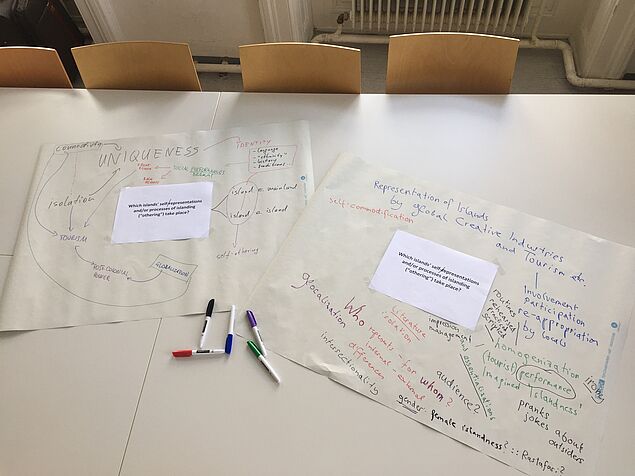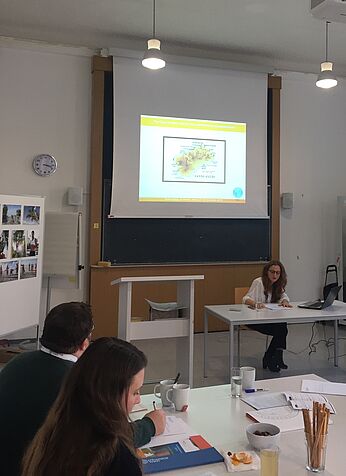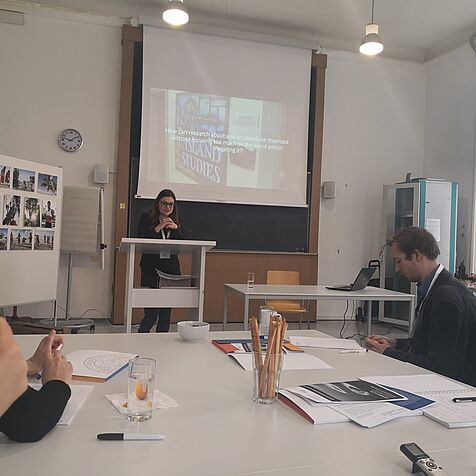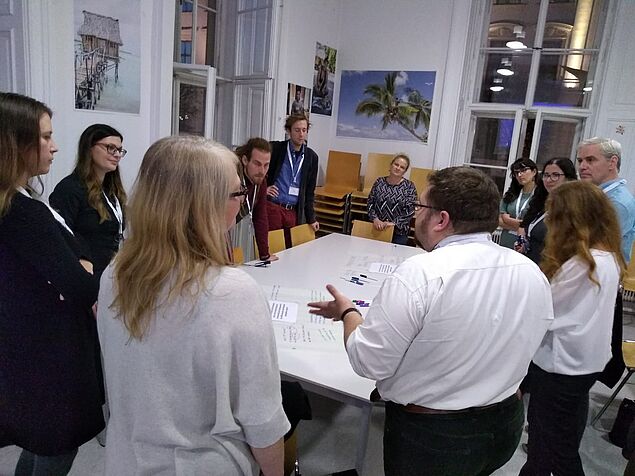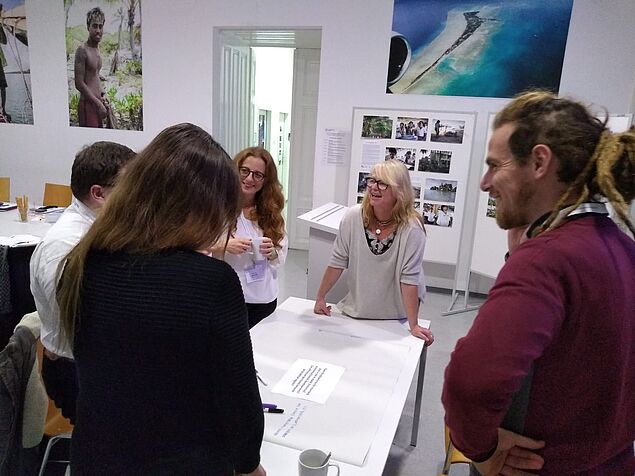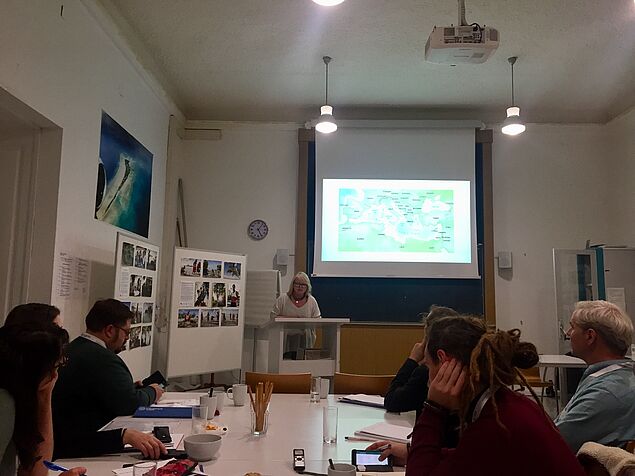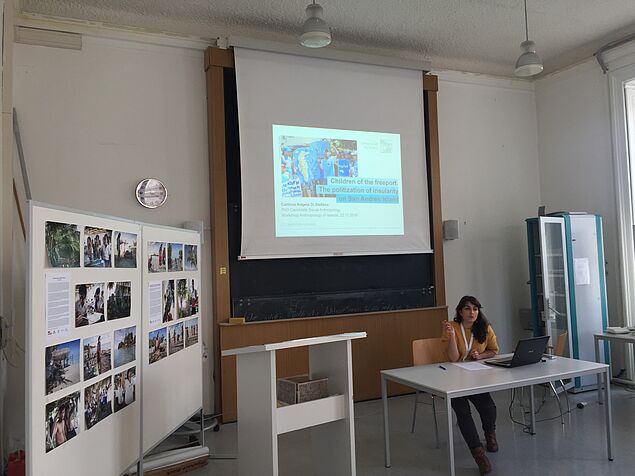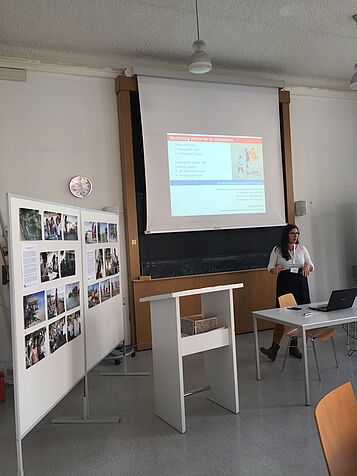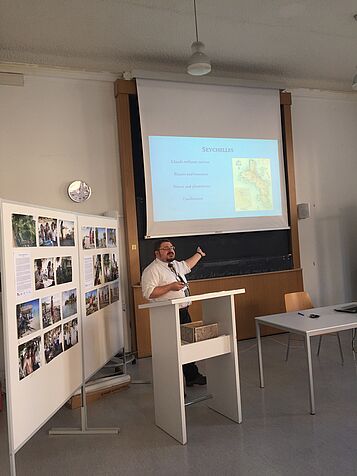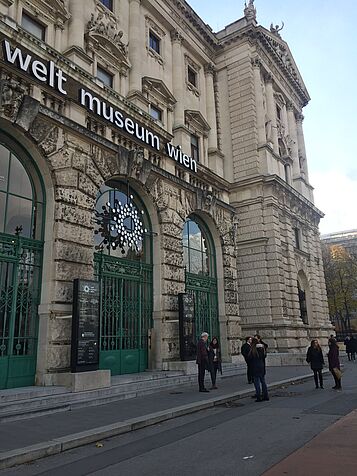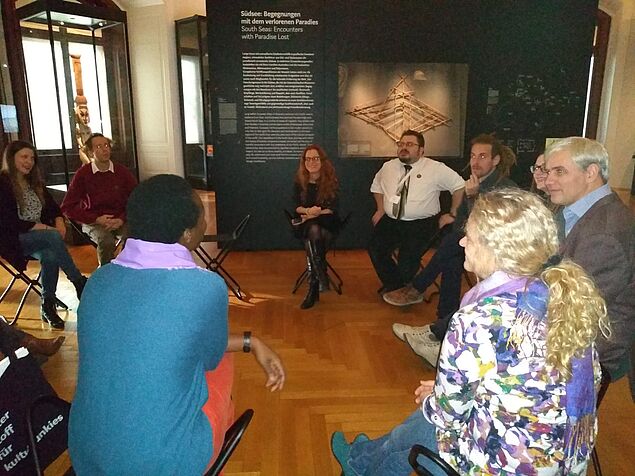Review
Workshop "Anthropology of islands"
Reflecting islandness from a historical and cultural studies perspective
University of Vienna, 21./22.11.2019
The workshop, which was based on a Call for Paper, served to exchange theoretical, methodological and practical research considerations of researchers who are conducting research in their current projects on or about islands. To what extent does the island play a role in our research? Which theoretical concepts do we refer to? Which ascriptions of the island are existing? These and other questions were addressed in a variety of formats (presentations, roundtables, discussions, close reading, museum visit) during the 1.5-day workshop.
In the course of the workshop, 8 participants from the fields of European Ethnology, Anthropology, Romance Studies and Literature Studies gave insights into their current island research. The contributions put up for discussion by the researchers were reflected on historically empirically, theoretically and methodically in peer commentaries by other participants. A close reading session and three interactive roundtables in between the presentation sessions have deepened the theoretical and methodological examination of the island/archipelago as an analytical category and research perspective. The accompanying program of the workshop included a guided visit to the exhibition "South Seas: Encounters with Paradise Lost" at the Weltmuseum in Vienna showing objects that tell of the everyday and ritual worlds in Polynesia, Melanesia and Micronesia.
In the public part of the workshop, Regina Römhild (Berlin) gave a keynote speech entitled: “Islands as political laboratories: Crete and the European imagination of the Mediterranean”. She argued that islands in the Mediterranean are political laboratories dedicated to the boundary work of borders and identities. She stated that conflicting imaginaries of belonging as well as intersecting transmaritime, transnational, transcontinental mobilities and relations would intervene in diverse hegemonic narratives of national and European unity. Thus, she suggested to “think with islands” in order to productively decentre and “migrantize” static geopolitical geographies.
Martina Giuffrè (Parma) showed how the female migration towards Italy and Spain from 1979 has led to the domestication or ‘feminization’ of Cape Verde’ space. The system of ‘co-motherhood’ between biological mothers and foster mothers (represented by ants, grandmothers, etc.) has taken on the trait of a ‘transnational motherhood’ between the women that stayed and the women that migrated. Thus, through female migration, she argued, the islands opened to a transnational world.
Laura Linzmeier (Regensburg) and Jonas Hock (Regensburg) showed – by taking the example of Sardinia – that using the island-specific identity for political (independence) aspirations and linguistic unification tendencies is contradictory to the historically evolved complexity. They argued that even if not only Latin, Catalan, Spanish, Italian and Sardinian were overlapping in the past centuries due to migration movements, Sardinian itself merely served as an umbrella term for several local (island) varieties whose ‘sardicity’ is partly controversial.
Gaspare Messana (Cagliari) investigated the ways in which in Sardinia the concept of islandness has influenced the contacts between the native population and other cultural paths. He discussed how and if the concept of islandness contributes in shaping the notions of hospitality and otherness. Furthermore, he analyzed how ‘hospitality’ intersects with the issue of transnational migrations and forced migrants, affecting the more recent history of the island.
Cornelia Dlabaja (Vienna) showed how Venetians reclaim their right to the island city at the backdrop of hosting over 24 million visitors each year. She discussed the phenomena of reshaped everyday practices of Venetian residents due to the mass tourism by focusing on their living conditions, effects on housing and working, discourses of taking care and development of social movements and local initiatives fighting for space in the city.
Corinna Angela Di Stefano (Konstanz) gave an insight into the politization of insularity in the process of ethnicization on the Colombian island of San Andrés Island (SAI). She showed that insularity was firstly a fundamental resource for the disassociation from the continental Colombians arriving, that fed the ethnic self-understanding of the so called raizales. In contrast nowadays, she stated, insularity seem to have lost its characteristic as an ethnic marker/argument and is rather mentioned in its functions to unite/pacify the “transcultural” population as a common denominator.
Francesco Bravin (Milan) proposed the term ethnopoises for the collective process of shaping a cultural identity shared by a certain social group, through discourses and performances reifying and actualizing the belonging of the members of that group. He compared the Seychelles islands and the Cinque Terre by referring to certain similarities in the local identity discourses and by contrasting how they deal with their ‘remoteness’: he stated, that the remote Seychelles islands tend to outline their connection with many different cultures, while on the other side the inland Cinque Terre tend to outline their centuries long isolation, just as if they were actual islands.
Bernhard Fuchs (Vienna) has shown how the recent Disney movie ‘Moana’ (2016) represent the life in Pacific islands. He pointed out that through this movie, the directors wanted to pay tribute to the film ‘Moana’ by Robert Flaherty (1926). In the movie we can detect the effort of engaging with ethnographic knowledge for avoiding exotic representation of the people. This seems to connect to the tendency to take the economic burden of representation to give voice to the people Disney addresses in its stories.
Following the inputs of the participants and convenors as well as on the basis of the discussion results of the interactive roundtables, in the evaluation and closing session it was discussed how we can think with the archipelago or the island. The final discussion also focused on a theoretical consensus regarding a planned joint publication, which should present the different approaches to understand the island as an analysis category on an interdisciplinary level.

